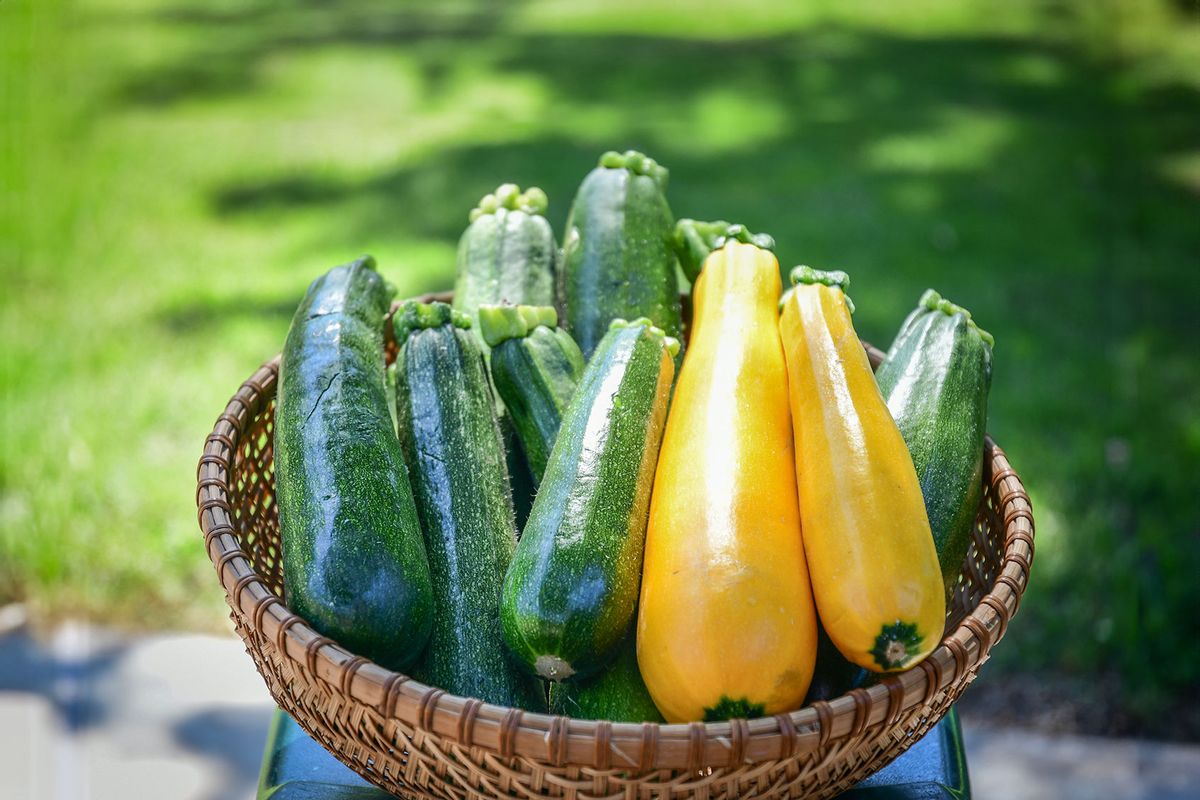As grocery bills continue to soar and the economic outlook remains uncertain, more Americans are turning back the clock to find inspiration: their grandparents, and the gardens they grew during tough times.
Victory gardens, embraced by Americans as a patriotic duty during World Wars I and II, are experiencing a renaissance on social media platforms like Instagram and TikTok, where the #victorygarden hashtag and how-to videos for beginners have been gaining momentum.
The concept dates to 1917, when a wealthy Michigan timberman named Charles Lathrop Pack started the National War Garden Commission, according to the World War I Museum and Memorial in Kansas City. It was a “decree from the top” operation: The Commission encouraged Americans of all ages to garden as a way to support the troops overseas. The effort produced genius posters like "Every Garden a Munition Plant,” "Sow the Seeds of Victory" and “Worms Will Win the War.”
Years later, during World War II, the movement gained traction as President Franklin D. Roosevelt encouraged the public to grow their own produce. The government actively promoted the initiative, with the Department of Agriculture publishing guides for first-time gardeners like "ABC of Victory Gardens."
In 2025, victory gardens — and the motivation for Americans across the political spectrum to start them — look a little different. While historically they were aimed at combating a foreign enemy and were government-led, their modern-day equivalents are grassroots and target a domestic nemesis: government dysfunction and the breakdown of the food supply system.
The gardens provide a solution for people dissatisfied with the price and the quality of produce they have access to. And instead of the Department of Agriculture taking the lead, social media creators are building this ecosystem and nurturing a budding interest in farming.
We need your help to stay independent
According to Axiom's 2025 Garden Outlook Study, nearly 40% of respondents plan to invest more time and money into their gardens this year. Younger generations are fueling this trend, with 69.2% of Gen Z and 51% of Gen Y planning to spend more.
"Seeds of rebellion"
Kendall Brown, 38, grew up in Oklahoma and has been farming or around farms her entire life. Now based in Kansas, she began noticing low-quality gardening products on TikTok Shop and a lack of quality information about how to begin gardening.
Brown posted her first video about victory gardens on March 10, giving her followers tips on where to find low-cost seeds and when to start planting. The post went viral with over a million views.
For Brown and her followers, gardening is also an act of political resistance: They're worried President Trump's policies could lead to a recession.
“There are a lot of people that are getting into gardening specifically because they see it as an act of rebellion and as an act of taking back some control over their life at a time when not only is there quite a bit of feeling out of control as a society, but also we have a presidential administration that specifically wants people to feel like they don’t have control,” Brown said.
She and her followers are workshopping a rebranding of sorts to reflect their point of view.
“They don’t like the name 'victory garden',” she said. “They would like to rename it, and the one that comes up over and over again that most people seem to really like is ‘Seeds of Rebellion.’”
"Everybody is so stressed about what the government is doing that they are like, ‘I have to do something, and it’s got to be something tangible"
In 2012, Christine Terramane, a Vermont-based farmer known as "your cool farm aunt" on TikTok, began working at one of the nation's oldest victory gardens in Massachusetts. She moved to Vermont with her spouse and two kids to start their own in 2021.
"During World War II, enough people grew their own victory gardens to supplement their own diets, so that there would be enough food for the troops overseas — that's a lot of people doing victory gardening and doing what they could to raise their food at home,” she says in a TikTok video. “We could do that, yeah we could do that."
Last year, she started posting more educational videos when she realized she’s living the “Instagram farm dream” many fantasize about. Now she’s seeing more direct messages and questions as her followers ask her for feedback on their progress.
Their motivation to garden stems from "a multitude of things," she said. Some yearn for healthier food options, while others want to make a political statement. All are sick of big corporations, she said.
She compares it to the sourdough baking trend that emerged during the early days of the coronavirus pandemic five years ago, during Trump's first term.
“Everybody is so stressed about what the government is doing that they are like, ‘I have to do something, and it’s got to be something tangible,'" she said.
Beginner gardeners don’t need to invest a lot of money to get started. They can volunteer at a Community Supported Agriculture farm or find a community garden in their city.
“I think people want to have more food security, spend less money long term and have a sense of a hobby that doesn’t cost tons of money,” said Karissa Cooper, who has been volunteering at a farm in Wisconsin three hours a week.
Correction: The victory garden movement gained traction during World War II when President Franklin D. Roosevelt encouraged it. A previous version of this article misidentified the president.



Shares